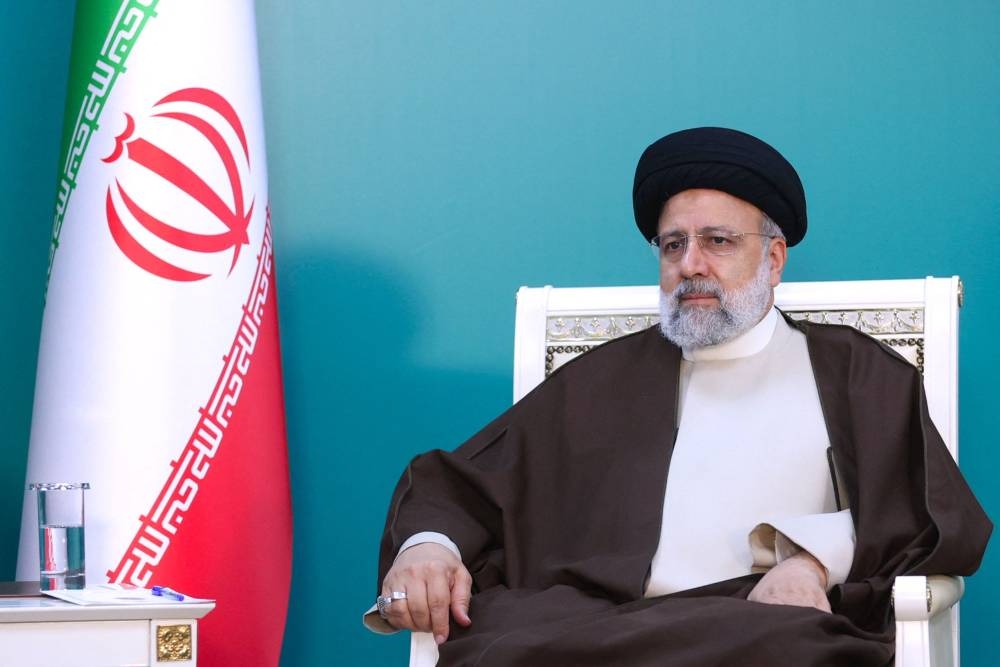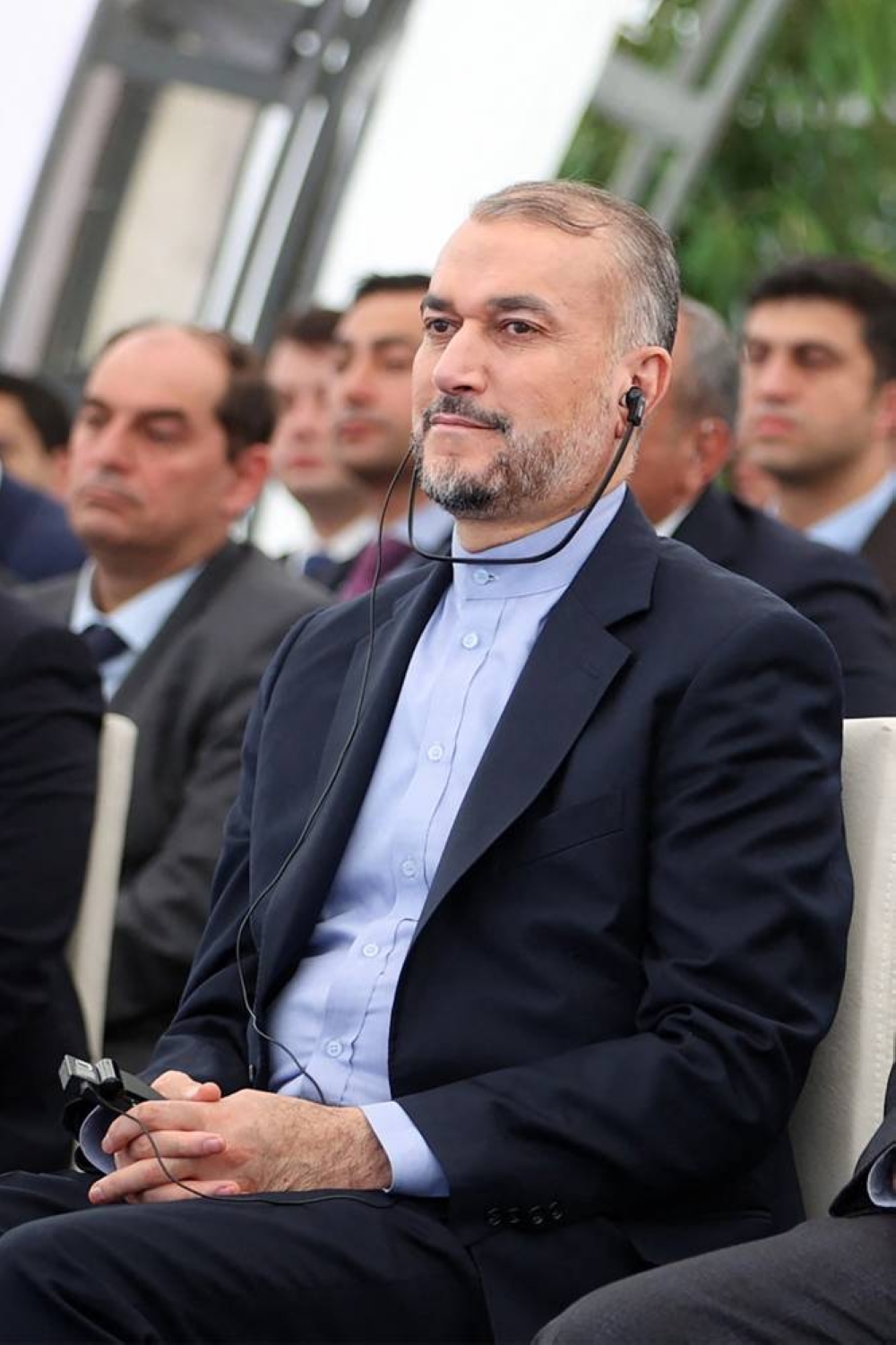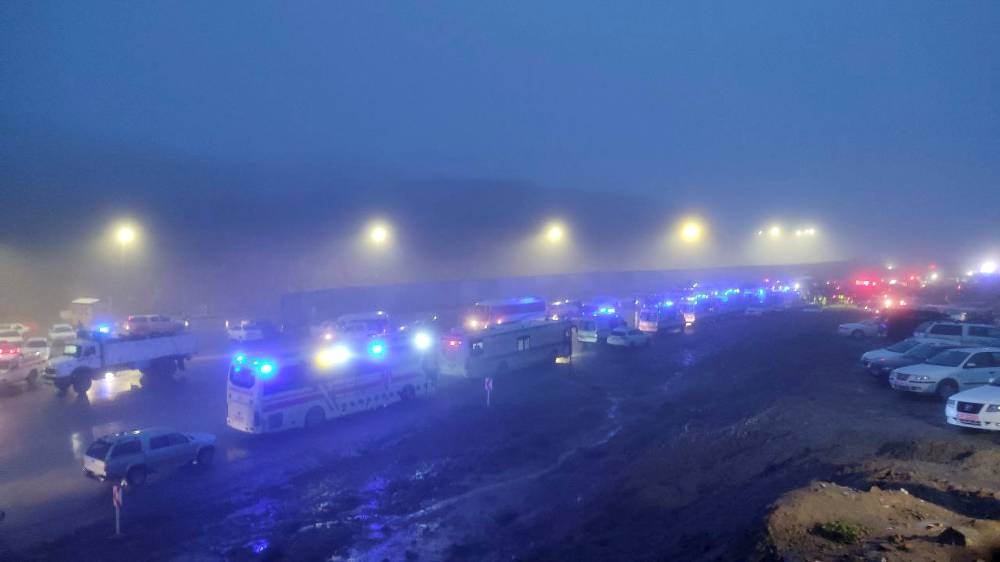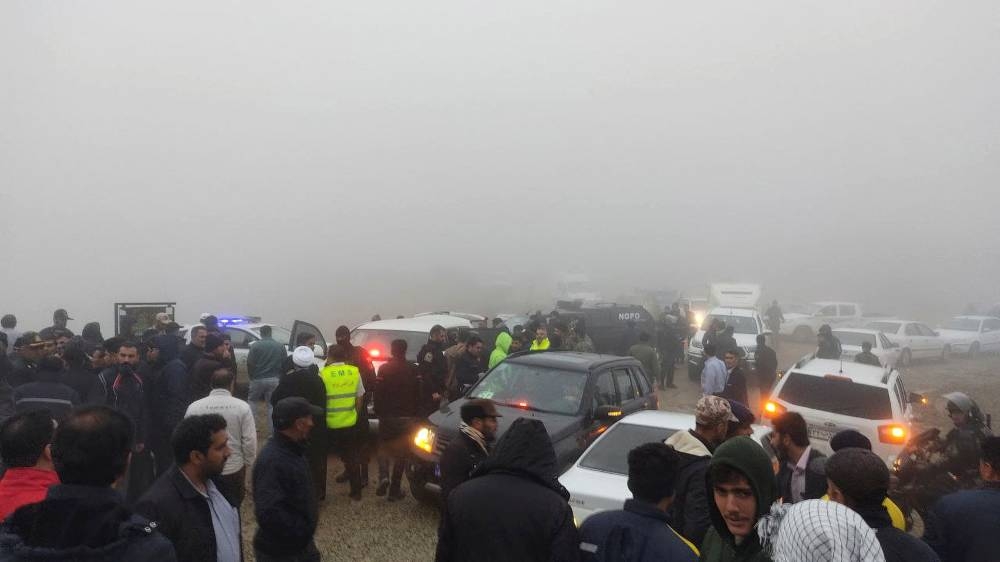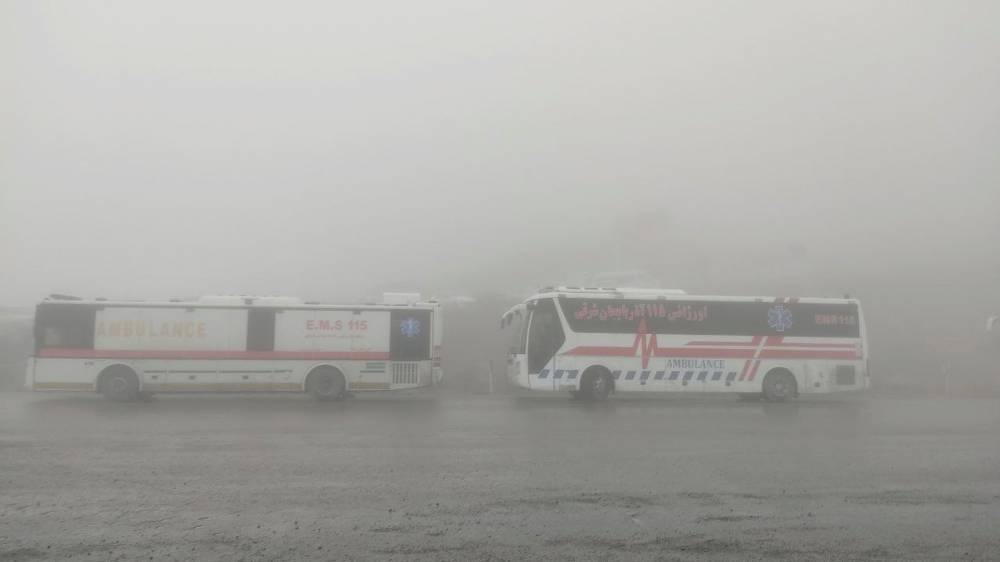- Iranian TV blames poor weather for crash
- Rescuers trying to reach crash site in rain
The official said the lives of Raisi and Foreign Minister Hossein Amirabdollahian were "at risk following the helicopter crash", which happened on the way back from a visit to the border with Azerbaijan in Iran's northwest.
"We are still hopeful but information coming from the crash site is very concerning," the official told Reuters, speaking on condition of anonymity.
State TV quoted an official as saying at least one passenger and one crew member had been in contact with rescuers. It also said the helicopter had been found, though Iran's Red Crescent denied this report.
Iranian Supreme Leader Ayatollah Ali Khamenei sought to reassure Iranians, saying there would be no disruption to state affairs.
Iranian state media said bad weather caused the crash and was complicating rescue efforts. State news agency IRNA said Raisi was flying in a US-made Bell 212 helicopter.
The chief of staff of Iran's army ordered all resources of the army and the elite Revolutionary Guards to be put to use in search and rescue operations.
Earlier, the national broadcaster had stopped all regular programming to show prayers being held for Raisi across the country.
In the early hours of Monday, it showed a rescue team, wearing bright jackets and head torches, huddled around a GPS device as they searched a pitch-black mountainside on foot amid a snowy blizzard.
"We are thoroughly searching every inch of the general area of the crash," state media quoted a regional army commander as saying. "The area has very cold, rainy, and foggy weather conditions. The rain is gradually turning into snow."
Neighbouring countries expressed concern and offered assistance in any rescue. The White House said US President Joe Biden had been briefed on reports about the crash. Turkey said it had assigned a drone, a helicopter, vehicles and a rescue team after a request by Iranian authorities. The European Union offered emergency satellite mapping technology.
Raisi has been president of the Islamic Republic since 2021 when he succeeded the moderate Hassan Rouhani, for a term during which Iran has faced crisis and conflict.
He took the reins of a country in the grip of a deep social crisis and an economy strained by US sanctions against Tehran over its contested nuclear programme.
Iran saw a wave of mass protests triggered by the death in custody of Iranian-Kurdish woman Mahsa Amini in September 2022 after her arrest for allegedly flouting dress rules for women.
In March 2023, regional rivals Iran and Saudi Arabia signed a surprise deal that restored diplomatic relations.
The war in Gaza that broke out on October 7 sent regional tensions soaring again and a series of tit-for-tat escalations led to Tehran launching hundreds of missiles and rockets directly at Israel in April 2024.
Raisi had been at the Azerbaijani border on Sunday to inaugurate the Qiz-Qalasi Dam, a joint project. Azerbaijan's President Ilham Aliyev, who said he had bid a "friendly farewell" to Raisi earlier in the day, offered assistance in the rescue.
In a speech following Sunday's dam inauguration, Raisi emphasised Iran's support for Palestinians, a centrepiece of its foreign policy since the 1979 Islamic revolution.
"We believe that Palestine is the first issue of the Muslim world, and we are convinced that the people of Iran and Azerbaijan always support the people of Palestine and Gaza and hate the Zionist regime," said Raisi.
Raisi, born in 1960 in northeast Iran's holy city of Mashhad, served as Tehran's prosecutor-general from 1989 to 1994, deputy chief of the Judicial Authority for a decade from 2004, and then national prosecutor-general in 2014.

